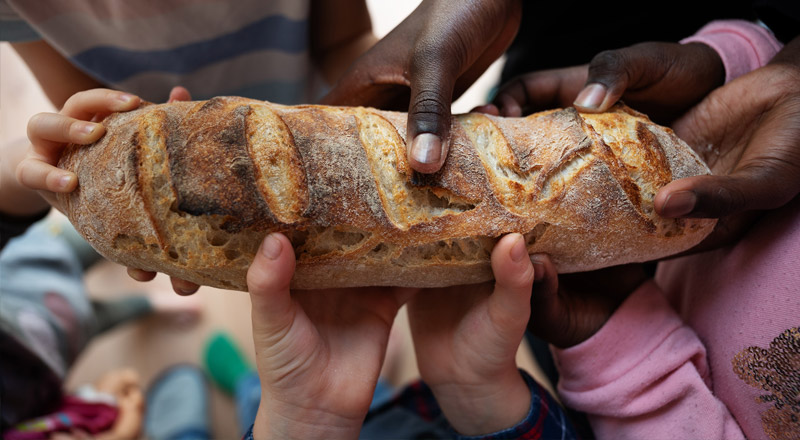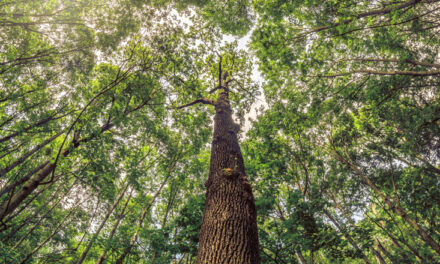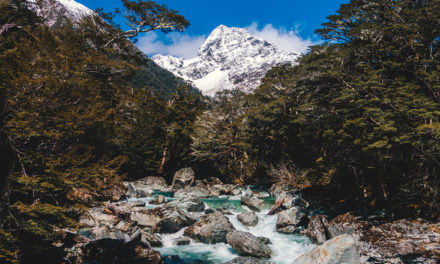Beware The Extraction
Tena tātou katoa e te iwi mīhana… (Greetings to all the people in mission),
The whakataukī (Māori proverb) for this post is a simple one: “he kai, he kai.” [Food for food]. Reciprocation is core to the life-orientation of all indigenous people around the world. Behind the most hospitable of cultures is a quiet expectation of reciprocated generosity. Maybe not immediately but certainly eventually. When something is given it establishes a hidden debt awaiting satisfaction. Much is made of the manaakitanga (hospitality, generosity, inclusion, etc) of iwi Māori, but if it’s all ‘take’ then the rule of utu (restitution, revenge) activates to rebalance the books so to speak—by force, whether passive or active. Generosity does not need to be reciprocated in equal value, as the Industrialised world renders value, but it does need to be equal in meaning.
For a simple example, in response to a felt need, I gifted a portable 3000lumen WXGA data projector to an indigenous ministry in the Middle East after my workshop with them concluded. Before my visit was up, I received a 4ft long camel hair mat to take home by way of reciprocated thanks. It remains a treasure, still in use in my office. I have no idea of the compared value, but it was important to my Arab friend that any potential obligation was satisfied ASAP, and (more importantly) it strengthened our relationship in the process. During the same trip I did a factory reset and gifted my late-model Macbook Pro to an expat missionary who had theirs stolen while I was there. The gift was made via an intermediary who provided confirmation the person received it. It may have created an uncomfortable level of awkwardness or something, but I was surprised not to receive some sort of acknowledgement of the gift from the recipient—an email of thanks at least.
Giving and receiving are the lifeblood of relationships.
My occasional tech-generosity aside, the anecdotes highlight differences between the Indigenous and Industrial ways of living that we do well to understand in missions. For the Indigenous/Collectivist, giving and receiving are the lifeblood of relationships. Regardless of the material value of the exchange, the process has covenantal meaning that strengthens relational commitments (bonds). In the Industrial/Individualist mindset, a gift exchange is typically contractual and (technically at least) non-obligational. If you choose to give something to someone, that’s your freewill choice. It is polite to acknowledge the gift and express appreciation in a locally appropriate way, but ownership is effectively transferred, freeing the recipient to do as they will with the gift. Gift giving in a contractual relationship world has no strings attached—unless explicitly stated, in which case it’s not technically a gift (often it’s a substandard payment for services rendered!). In the Industrial knowledge system, giving with the unspoken expectation of some sort of reciprocated privilege has a special name: bribery.
On the opposite side of the spectrum from giving is extracting. Extraction is of particular concern to post-colonial discourse, because the entire colonial enterprise is seen as exploitative and extractive. The recipient takes from the other usually without permission, or without the other fully appreciating that their ‘gift’ would not be adequately reciprocated in the context of a flourishing mutual relationship. My tribal forebears experienced this with their gift of Lake Wairarapa and environs to the government of New Zealand in 1896. It took until 1916 for compensation in the form of land known as Pouākani—a woefully substandard recompense (since wonderfully redeemed by innovative agricultural techniques), a chunk of which the government then took back to build hydro-electic dams and the town of Mangakino. Far worse stories than these form Waitangi Treaty Tribunal cases the nation over.
In our age of authenticity, it is never acceptable for the outsider to appropriate the cultural forms of the insider in an attempt to translate a gospel as the outsider understands it.
Indigenous people are right to draw attention to the extractive ways of expatriates, migrants and successive generations of settlers, who have benefited from a settler-government-enforced Industrial sense of “ownership” over resources (capital) that were indigenously viewed as “commons” for sustainable use by all toward mutual benefit. Such resources include cultural property such as language, ritual, fashions and artefacts etc. These days it is not at all politic to ‘appropriate’ such things for one’s own benefit as an outsider to the group that has rights to the resources. There is an important lesson here for the missions practice of an incarnational theology—in our age of authenticity, it is never acceptable for the outsider to appropriate the cultural forms of the insider in an attempt to translate a gospel as the outsider understands it. Respect, identify and adapt, yes, but appropriate, no.
The gospel is a narrative of Christ experienced in particular places and times—it is endemic, not transplanted or imposed. Merely wrapping the experience of Christ from one culture in the cultural forms and norms of another is a type of appropriation and does the gospel an injustice. For sure, the person of Christ needs to be introduced as clearly as possible where He is not known previously, so that relationships can form, and Scriptures need to be taught such that they’re understood in a new setting, but we must allow the lived experience of God in-Christ to emerge indigenously. This is the gospel to which they will be witnesses. And, more to the point of this post’s theme, we must be careful not to extract or leverage that experience, or the gospel’s spread in a particular locale, for our own gain—it is the indigene’s story tell, not ours.
So, yes, extraction need not be material. It also applies to things such as knowledge and lived experience. I was recently invited to various conversational forums for a large international network as part of their process leading up to a major event. I participated in one, but it felt uncomfortably extractive. Why? Because there was little perceived (an no stated) mutual benefit from the exercise. It felt like leveraging goodwill to do information harvesting—extracting the participants’ experiences and ideas to be repackaged under a particular brand. I might be being overly sensitive and cynical, but such a posture is all too common in missions research and practice—one way streets: impose or extract. Of course, this is usually not intentional, but it does need to be acknowledged and avoided. Careful attention to reciprocated generosity and mutual benefit is key.
Food for food. If, as many hope, we are entering a new era of missions that will be collaborative in degrees we have not previously experienced, we will need to get to grips with what mutuality really means and how reciprocity should be foremost in our thinking as we, #stayonmission.
Whakapaingia te Atua, to tatou kaiunga ki te ao whanui (May we be blessed as God sends us into the wider world),
Jay







